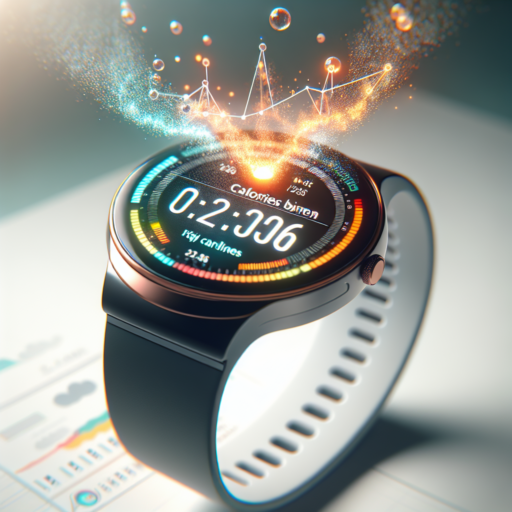What watch is most accurate for calories burned?
Finding the most accurate watch for tracking calories burned is essential for individuals looking to monitor their fitness progress with precision. Among the myriad of options available, particular models stand out for their advanced algorithms and sensor technology. These watches not only offer general activity tracking but go the extra mile in providing data that closely mirrors the actual calories burned, making them invaluable tools for fitness enthusiasts and athletes alike.
Most high-end fitness watches utilize heart rate data, among other metrics, to estimate calories burned. This method is generally more accurate than those relying solely on step counts or movement detection. Watches from brands like Garmin, Apple, and Fitbit are renowned for their sophisticated heart rate monitoring capabilities. Garmin, in particular, offers watches that are widely acknowledged for their precision in tracking diverse forms of physical activity and translating that into caloric expenditure. The Garmin Forerunner series and the Fenix models are exemplary in this regard, boasting features such as VO2 max estimates and recovery insights that enhance the accuracy of calorie burn calculations.
It’s also worth mentioning the importance of personalization in improving the accuracy of calorie burn estimates. Watches that allow users to input personal information such as age, gender, height, weight, and fitness level can more accurately tailor calorie burn figures to the individual’s unique physiological characteristics. Consequently, models like the Apple Watch Series and Fitbit Charge series offer customizable settings that help refine these calculations, ensuring users receive insights that mirror their personal fitness journey.
Can watches track calories burned?
Yes, modern watches, especially smartwatches and fitness trackers, have the capability to track calories burned. These devices utilize a combination of sensors and algorithms to monitor physical activities and calculate the amount of energy expended. By tracking your heart rate, steps taken, and even your sleep patterns, these watches can provide a comprehensive overview of your daily caloric burn. However, it’s important to note that while these devices offer a good estimation, the accuracy can vary depending on the specific model and the algorithm it uses.
Most of these watches require initial setup information such as age, weight, gender, and height to more accurately predict the calories burned. This data helps in fine-tuning the calculations by taking into account the user’s metabolic rate and the intensity of the activities. Some advanced models even incorporate GPS tracking to more accurately gauge the exertion level during workouts or runs, improving the precision of the caloric calculation.
In addition to raw data, many smartwatches and fitness trackers come with associated apps that provide detailed insights and analysis of your physical activity. These apps not only display the calories burned but can also offer suggestions for improving your fitness routine and achieving your health goals. Whether for weight loss, maintaining fitness, or simply monitoring health, these devices and their applications can be powerful tools in understanding and optimizing your caloric expenditure.
No se han encontrado productos.
Is there a wearable that tracks calorie intake?
Exploring Wearable Technology for Tracking Calorie Intake
In the era of modern health and fitness technology, a common question arises: Is there a wearable that tracks calorie intake? The concept of wearable technology capable of monitoring your daily caloric intake effortlessly has been a topic of keen interest among health enthusiasts and tech-savvy individuals alike. While wearable devices like fitness bands and smartwatches have been successful in tracking physical activities and estimating burned calories, tracking the intake part of the equation presents a more challenging scenario.
Current Innovations in Wearables for Calorie Tracking
Several startups and tech companies are venturing into the realm of creating a wearable that promises to track what you eat. These devices aim to employ a combination of sensors, algorithms, and databases to provide an estimate of the calories consumed. While not all are fully market-ready or as accurate as traditional methods of tracking intake through logging food consumption manually in apps, they represent a significant leap towards understanding our eating habits better.
Limitations and Challenges
Despite the excitement surrounding these innovations, it’s essential to acknowledge the limitations and challenges that come with developing a wearable calorie tracker. Accurately determining the caloric content of diverse foods based on consumption patterns or scans without detailed input presents a technological hurdle. Moreover, the effectiveness of these devices often depends on the integration of advanced technologies such as AI and machine learning, which are still being fine-tuned for consumer applications in this space.
What watch tells you how many calories you’ve burned?
Tracking the number of calories burned has become an essential feature for individuals aiming to maintain a healthy lifestyle or achieve fitness goals. Various smartwatches have emerged on the market, equipped with advanced sensors and algorithms, to cater to this need. These devices not only provide us with the luxury of timekeeping but have evolved to become personal health coaches worn on the wrist.
Fitness-Oriented Smartwatches
Many smartwatches are specifically designed with fitness tracking at their core. Brands like Fitbit, Garmin, and Apple Watch are renowned for their precise calorie tracking features. They utilize a combination of heart rate data, physical movement, and sometimes even GPS to estimate the number of calories burned throughout the day. The Apple Watch, for instance, uses its proprietary Workout app that allows users to select the type of activity they are performing for more accurate calorie burn estimations.
Importance of Accuracy in Calorie Tracking
The accuracy of calorie burn estimates varies from one device to another, often depending on the sophistication of the watch’s sensors and the algorithm it uses to analyze data. It is crucial for users to select a watch that not only fits their lifestyle but also provides reliable data that can help them in making informed decisions about their diet and exercise regimen.
In conclusion, the quest for the ideal watch that tells you how many calories you’ve burned involves considering several factors including the device’s accuracy, type of activities you perform, and your own personal health goals. By carefully selecting a device that aligns with these factors, individuals can effectively monitor their caloric output, aiding them in their journey towards achieving their fitness and health objectives.




